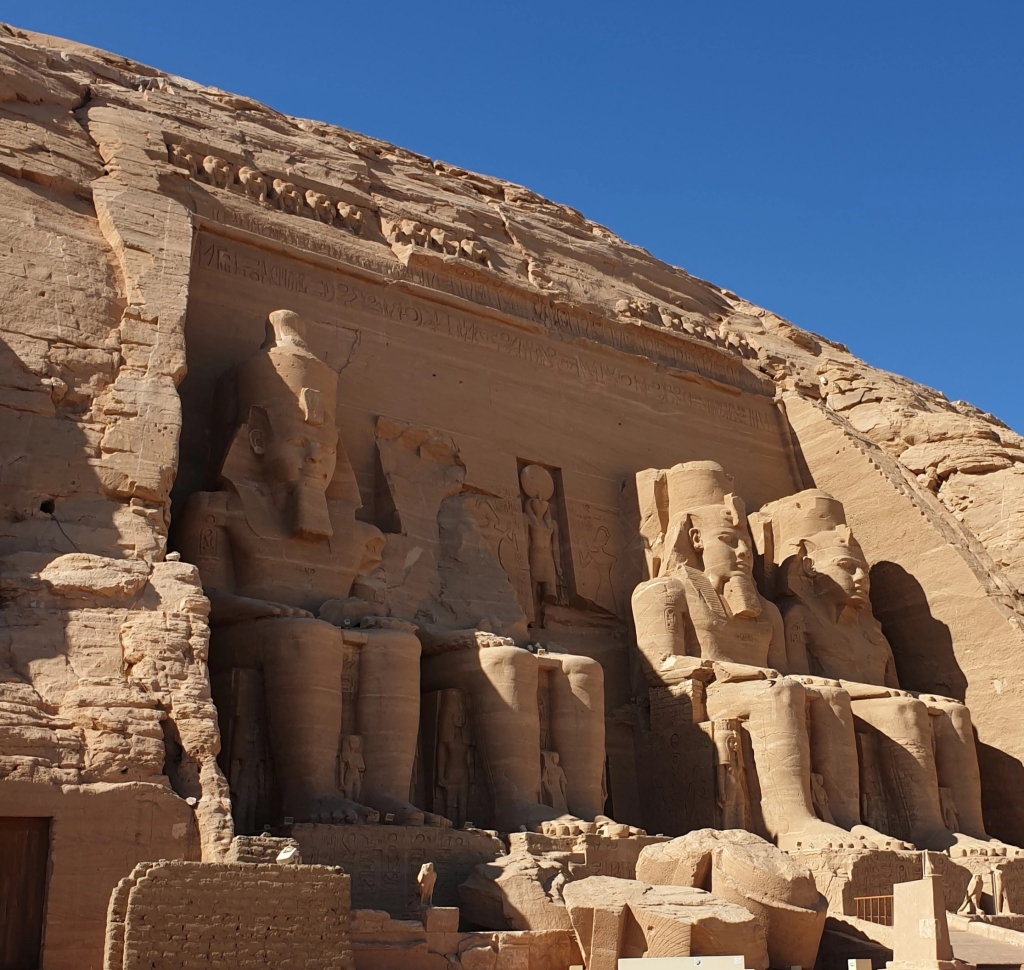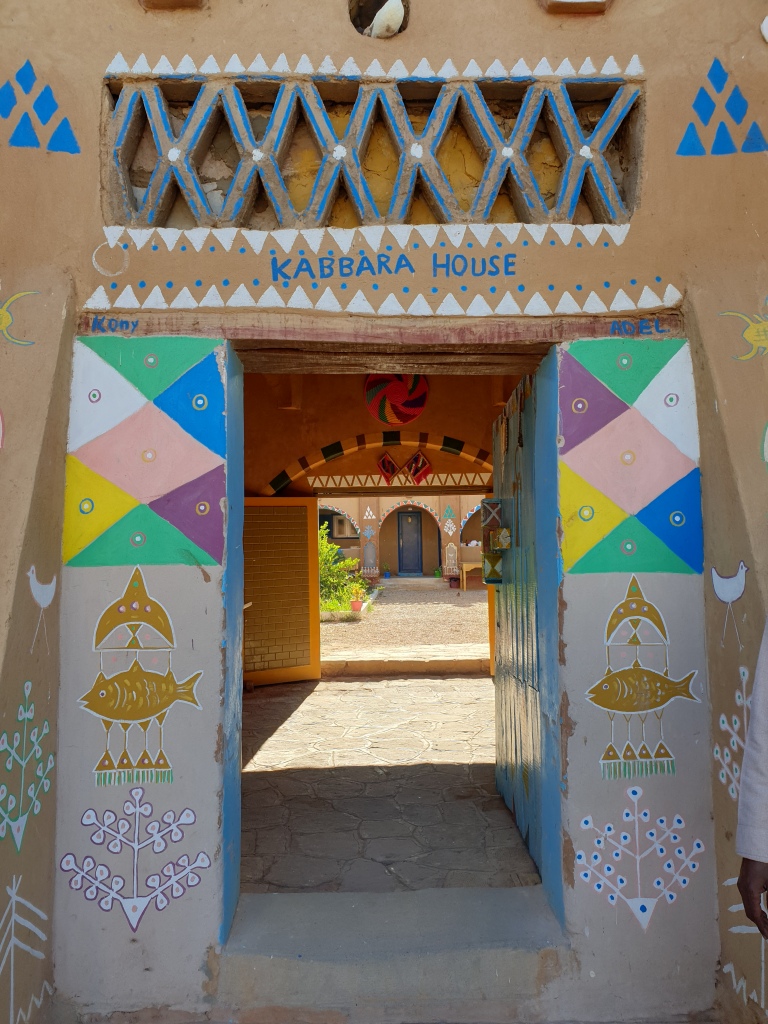
Having travelled around Egypt from the capital Cairo to southernmost Aswan and South Sinai, here are some of my top tips to help you navigate the country as a solo traveller. As this was my first trip to Egypt, I visited popular regions most known to tourists and advice is based on my experience in the following areas.
- Cairo
- Luxor
- Aswan
- Sharm El Sheikh
I have a separate post on Egyptian highlights if you’re after tips and itinerary on the above regions.
Egypt is a very beautiful country, so entrenched in history and diverse in culture but is also politically fragile and not the easiest to navigate. Travelling around Egypt isn’t for the faint hearted especially as a lone female and without careful research first time solo travellers would certainly find it a challenge so would personally recommend for the more experienced traveller. This is not to insinuate Egypt is unsafe, on the contrary it is very hospitable with warm people but getting around is not hassle free! Here are some things to bear in mind for your solo venture around Egypt.
Top Tips:
Planning a route:
If you’re travelling from the UK or Europe, there are budget airlines flying to Hurghada and Sharm El Sheikh. You can start and end your journey here, alternatively flying to Cairo direct may save you time.

Health & Safety:
Solo travellers tend to have a raw experience of destinations, authentic and humbling but not always pretty. Note, Egypt may be known for its enormous attractions, but it is still somewhat developing so have realistic expectations for your trip. I found the safety standards lower here than many parts of SE Asia whether its accommodation, hygiene to road safety. Busy roads can also be a challenge to cross if you’re not use to it (Cairo) follow a local or ask someone to assist you.
Police and Security:
There’s a strong police presence in Cairo, you’re not allowed to take pictures near public buildings and if seen doing so you may be approached and asked to have these deleted (happened to me once) -the officer was nice but spoke no English, we were both lost in translation but got the gist.
If you’re travelling on bus or minivans (even through arranged tours) and crossing regions you’d be passing a few checkpoints. This is particularly the case in Sinai (N Sinai is out of bounds for European tourists and region borders other countries). You’ll be asked to show your passport, if journey is made solo you may get questioned on your itinerary, but process isn’t too lengthily.
Some backpackers have hitchhiked as this can get you around hard to reach areas, but this is officially not allowed. If you find yourself needing to do so and seen by a police officer, you may be escorted to closest town/city which may not have been your intended destination.

Transportation:
As a solo traveller you will most likely use public transport in the country and for a non-Arabic speaking foreigner this can be a challenge to navigate. Good news is that there are local and regional buses as well as trains that connect big cities, journeys lasting a few hours to overnight.
You can check out routes and timings of buses at Go Bus and train times and tickets here. Unfortunately, not all bus routes have an online presence, so you’d have to check timings and route upon arrival but liaise with your hosts and or your local contacts on ground for information. Research local bus stations before arrival (distance from accommodation so can check it out should you need to before a journey).
Beware of transport scams: Sadly I’ve witnessed many scams during my trip especially where train tickets were concerned, not uncommon for guards to take bribes. If you’re told you need to pay a different price to the ticket you saw online or what locals are paying, it is a lie! Don’t fall for it despite the men behind the ticket office trying to convince you to buy a £3 ticket for $20-20 for a 3hr ride. When approaching the counter, dress like a local, if you don’t speak Arabic use google translate stating the specific tickets you want (destination, date, time and class). If you’re refused or told to go back office (random office in the back to get scammed really), say no but try and get a local to buy for you. Alternatively board the train and buy it on the train, I’ve seen travellers do this without a hassle. DO NOT FALL FOR TOURIST PRICE!
Domestic Flights:
Egypt sadly is not that well connected regionally with domestic airlines; it seems everything starts and ends with Cairo. So, if you’re flying from Aswan to Sharm El Sheikh for example you’d need to transit in Cairo. But there are many domestic airlines to choose from including EgyptAir, Air Cairo and Nile Air
Ferry:
If you’re planning on a circular route involving Sinai region and want to get from Hurghada to Sharm El Sheikh for example the best connection would have been via the ferry route. This sadly was not working during my trip, but you can find out here and contact them on Whatsapp before you make concrete plans. You may want to check with locals how much the journey should be as online prices will be targeted to tourists and sometimes quote more than flights, again could be a scam so err on the side of caution.
Transport Apps:
My journey was made so much smoother with these apps, so ensure to download before arrival:
- Uber: Popular in Cairo and most rides are less than £1 within city centre but Cairo Metro is also convenient. If you’re trying to avoid pollution however (Cairo is heavily polluted) stick to an Uber which allows usual card and cash payments.
- Careem: Another popular Uber like app in Luxor and Aswan, this is great in Upper Egypt
- InDrive: This is popular in Aswan and Sharm El Sheikh where you place a bid for a driver which driver will accept/reject. Note, cash payments only
Use these apps within cities and from airport as a lot cheaper than taxis on arrival (between £3-£5 using an app) or if your flight is at an odd time, try and arrange pick up with your accommodation (£8-£12).

Local knowledge:
There’s no substitute for local knowledge, even before booking your trip liaise with locals on online forums/pages/ groups -be genuine and try and build a connection to whoever you feel safe speaking to. You can post your trip on Couchsurfing, Host A Sister or join a local or Muslim specific group such as a local sisters group in cairo or try Foreign Muslims in Egypt
Learn a few Arabic words:
If you’re not an Arabic speaker, it helps to learn a few words and most importantly knowing numbers. This comes handy when trying to buy something as Egypt has very few shops with fixed priced items and as a foreigner you can easily get charged x10 more for a product than a local and even after bartering you may feel like you’ve got a great deal, but most likely overpaid to some degree. Watch and listen to how much it costs someone who looks like a local. Apps like Google Translate and SayHi are great for verbal and written translation. Try and practice common numbers (5’s, 10’s, 100’s).
Cost of solo travelling:
How much should things cost? How long is a piece of string? For tours and day trips, I discuss this in my other post on Egyptian Highlights. For solo accommodation, for the backpacker type low maintenance traveller, it can range from £5-20 a night (some include breakfast and can range from camp sites, dorms to private rooms in hostels). Of course, 3*+ hotels will be significantly more even more so for the solo travellers. If you’re staying in a hostel, the standards are significantly lower in Egypt than Europe or Asia so ensure to read recent reviews and that it has a high score on booking sites. Health & Safety in some places is also questionable, I would recommend staying in a guesthouse (even a homestay if staying with a local so they’re on site) or a hotel if within your budget.
The most expensive purchase you’ll make is on domestic flights, but if you can avoid this and have plenty of time, buses can cost a 10th of its price.
Mobile SIM/Data:
Egypt has limited public Wi-Fi and it’s not commonplace for people to use this in cafes/ restaurants. If you urgently need access and happen to be with a local (or befriend one) you can ask to use their hotspot, it worked well with me. But ensure to get a local SIM soon after arrival from an official phone shop such as Vodaphone, it may be cheaper to buy from a vendor but you’re more likely to be subject to scams (pay for a 20GB but receive 5GB – these practices sadly exist). If you’re purchasing one on your own from official shops, you’d need to take your passport but if you have a local purchasing it on your behalf, the SIM will cost a lot less and they’d need their ID. Opt for a SIM with maximum data within your budget and limit data usage to only when needing to use (for example calling an Uber) otherwise turn it off. Remember to download offline maps of cities visiting before arrival.

Blending in:
Being racially ambiguous and dressing like a local in Egypt helped me a great deal, I was able to steer away from street hustlers and avoid being overly charged in shops. If you’re not a hijabi but think you’ll stand out (because of your hair or skin colour or height) I would encourage you to wear a hijab especially when out in public and using local transportation. Try and avoid wearing western clothing if you can or make it look more local (jeans with long tops/dresses as opposed to t-shirts). Blending in helps to not attract unwanted attention and makes you look less vulnerable, there’s also some degree of respect I received when fellow passengers noticed I was a Muslim travelling on my own in foreign county. I found people to be very warm and polite in Egypt and did not encounter any hostility. There are a lot of people that work in the tourist trade so you’re likely to be approached multiple times especially in places like Luxor, don’t be dismayed -they’re just trying to earn a living. Being prepared and good research goes a long way. Enjoy!
Some useful apps:
- Talabat(equivalent to Uber eats)
- Swvl (ride sharing app)
- Tobadaa (local tour guides)
- Friendlycar (car rental)